During UNC’s heartbreaking 17-13 loss to South Carolina last Thursday there was one player notably missing from the Tar Heels’ final seven offensive plays—sophomore running back Elijah Hood.
Head Coach Larry Fedora gambled unsuccessfully late in the game, sacrificing Hood’s power running to try and keep the Gamecock defense off balance with his fast paced no-huddle attack.
On a night where he burst for a career-high 138 yards on the ground, Hood proved to the South Carolina defense that he had no issues running through any of them. He was making it look like child’s play.
For that reason, Tar Heel fans have questioned Fedora’s decision to keep Hood on the sideline as quarterback Marquise Williams threw an interception that ended up sealing UNC’s fate.
“The plays that were called were called because that’s what we prepared [for] in that situation, and we felt like they would be successful,” Fedora said at Monday’s weekly press conference. “We didn’t execute the play that was called.”
“If I knew right now that those plays would not have been successful I would not have run them,” he added. “I promise you.”

Hood provided the lone bright spot for UNC’s offense on Thursday, putting up 138 yards on 12 carries. (UNC Athletics)
At the start of the Tar Heels’ last drive Hood was the tailback on the field. With the team facing 3rd-and-1 from its own 48 yard line, he exploded for a crucial 29-yard gain.
He would not play again the rest of the night–although it appeared at one point the coaches had to keep him from putting himself back out there.
“I had thought I’d been called in, but I guess I just misheard that,” Hood said. “I think it was just the tempo we were running. And there was a certain play called in. So they were just gonna run with what they had–and that was gonna be it.”
Fedora said that the team shifted into its hurry-up offense, which requires the team to quickly get to the ball and start the next play. Using this strategy means that the team can’t substitute without allowing the defense to also do so. The goal was to simply tire the Gamecocks out, while hoping Williams could get into a rhythm throwing the ball.
“If I could do it over, I’d do a lot of things differently,” Fedora said. “But I don’t get the option to do that. That’s the great things that you guys get to do that we don’t. Sure, you could say we had 60-something plays, we could have handed it to Elijah 60-something plays.”
That may be true, but for the last seven plays of this game Hood could only watch as his team failed to come up clutch. He remained on the sidelines despite being the Tar Heels’ only real offensive threat the entire second half—putting up all but 20 of his 138 yards in the final two quarters, including three runs of over 20 yards.
“I just felt a sense of urgency on every play,” Hood said about his second half performance. “It felt like I needed to score every play. So, I don’t know. I just wanted it badly, every play. That’s the way I run.”

Plenty of focus will surround Hood the rest of the season. (UNC Athletics)
As he tries to put this tough loss behind him and turn his attention toward the rest of the season, Fedora is now keenly aware of just how dangerous Hood can be.
“You look at how productive he was in the game, you say ‘We wanna make sure we get the ball in his hands so many times a game,’” Fedora said. “If he’s healthy, and running well and productive, then we need to get the ball to him more. There’s no doubt.”
And should this late game scenario present itself again, Hood is ready to hear his name called–if that’s what the coaches decide is best for their team.
“There’s nothing like punching it in on a defense to take the air out of their lungs, for sure,” Hood said. “It’s something I’ve always done.
“Whenever it’s on the goal line, I’ve been the guy to get it in. No matter what.”
Related Stories
‹
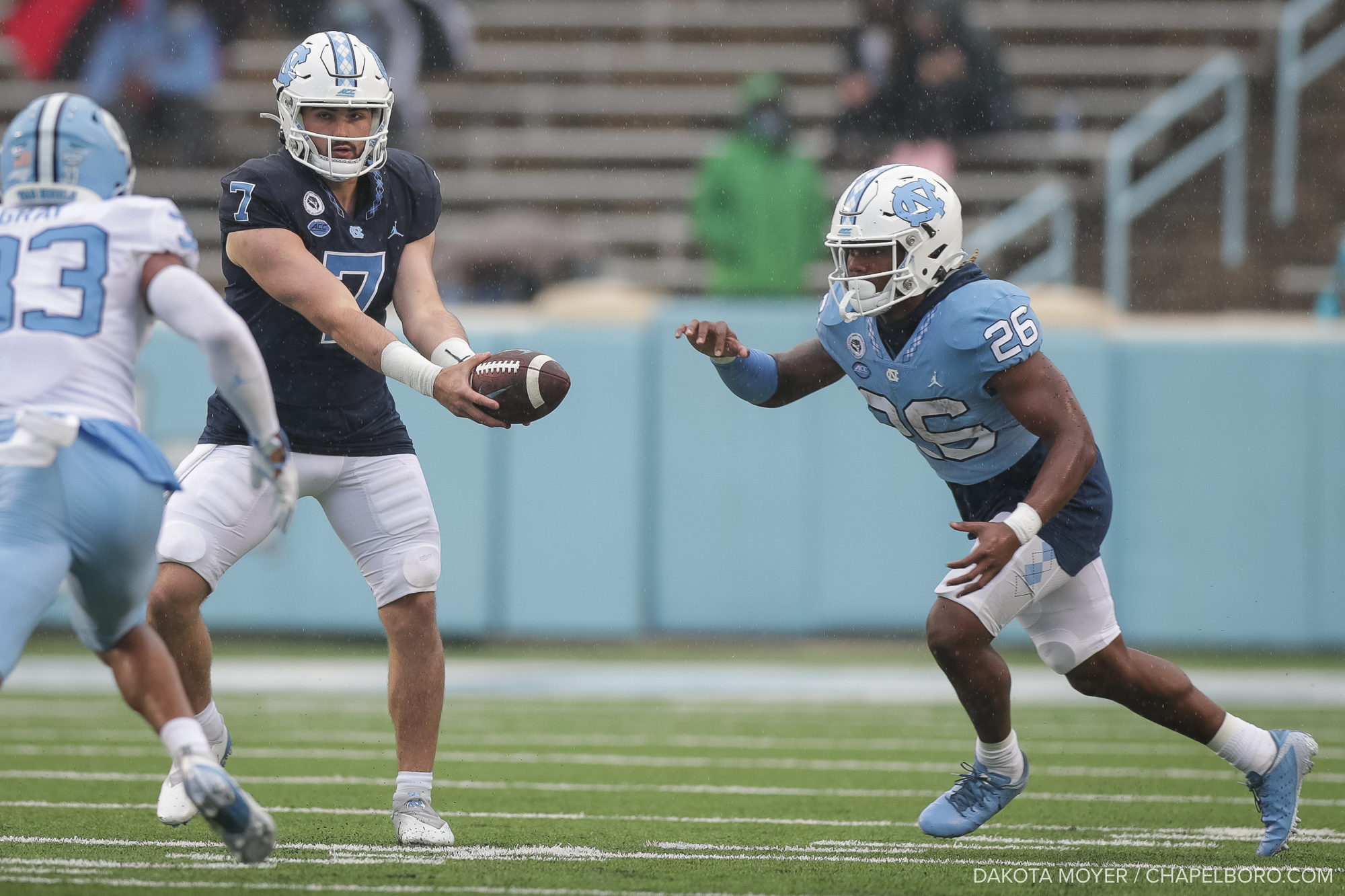
UNC Football Single Game Tickets Go On Sale MondayBeginning on Monday at 9 a.m., single-game UNC football tickets for the 2021 season will be available to the general public. Season tickets have already sold out according to the school, as the Tar Heels look to meet the high expectations awaiting them for the upcoming campaign. Limited quantities are available, with pricing starting at […]
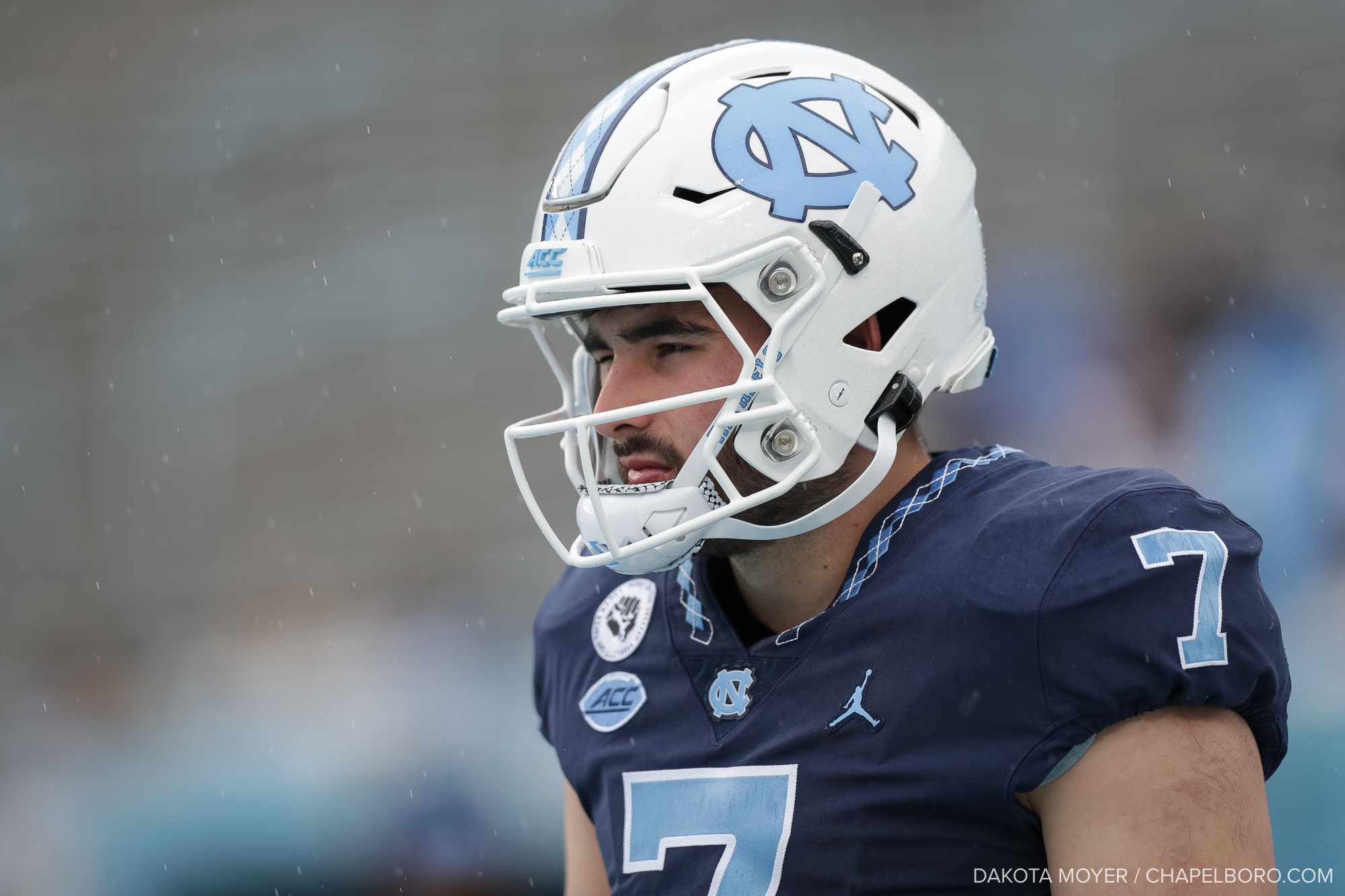
Sam Howell Selected to Davey O'Brien Award Watch ListPreseason accolades continue to roll in for UNC junior quarterback Sam Howell, who was named earlier this week to the watch list for the Davey O’Brien Award. Howell was one of 30 players on this year’s watch list for an award which has been presented annually to the top quarterback in the country since 1981. […]
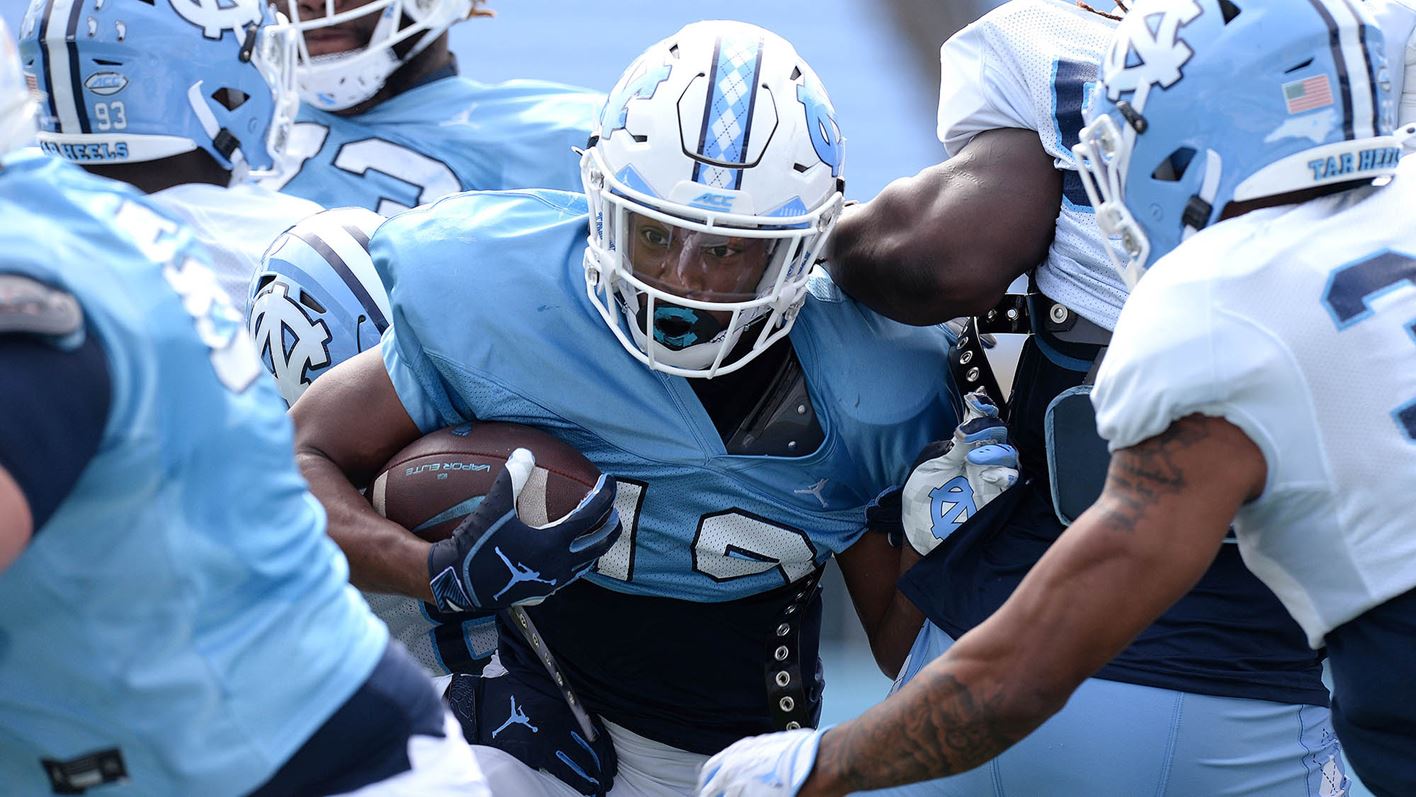
Ty Chandler Selected to Watch List for Doak Walker AwardAhead of his first year with the Tar Heels, Tennessee running back transfer Ty Chandler was named Wednesday to the watch list for the Doak Walker Award. The award is presented the top running back in college football. Chandler arrives in Chapel Hill ranked fifth in Tennessee history with 3,245 all-purpose yards — 2,015 of […]
![]()
Former UNC Kicker Noah Ruggles Transferring to Ohio StateThrough a post on Instagram earlier this week, former UNC kicker Noah Ruggles announced he has accepted a scholarship offer to take over the kicking position at Ohio State. Ruggles will join the Buckeyes as a graduate transfer with two years of eligibility remaining — filling a desperate need on special teams for one of […]
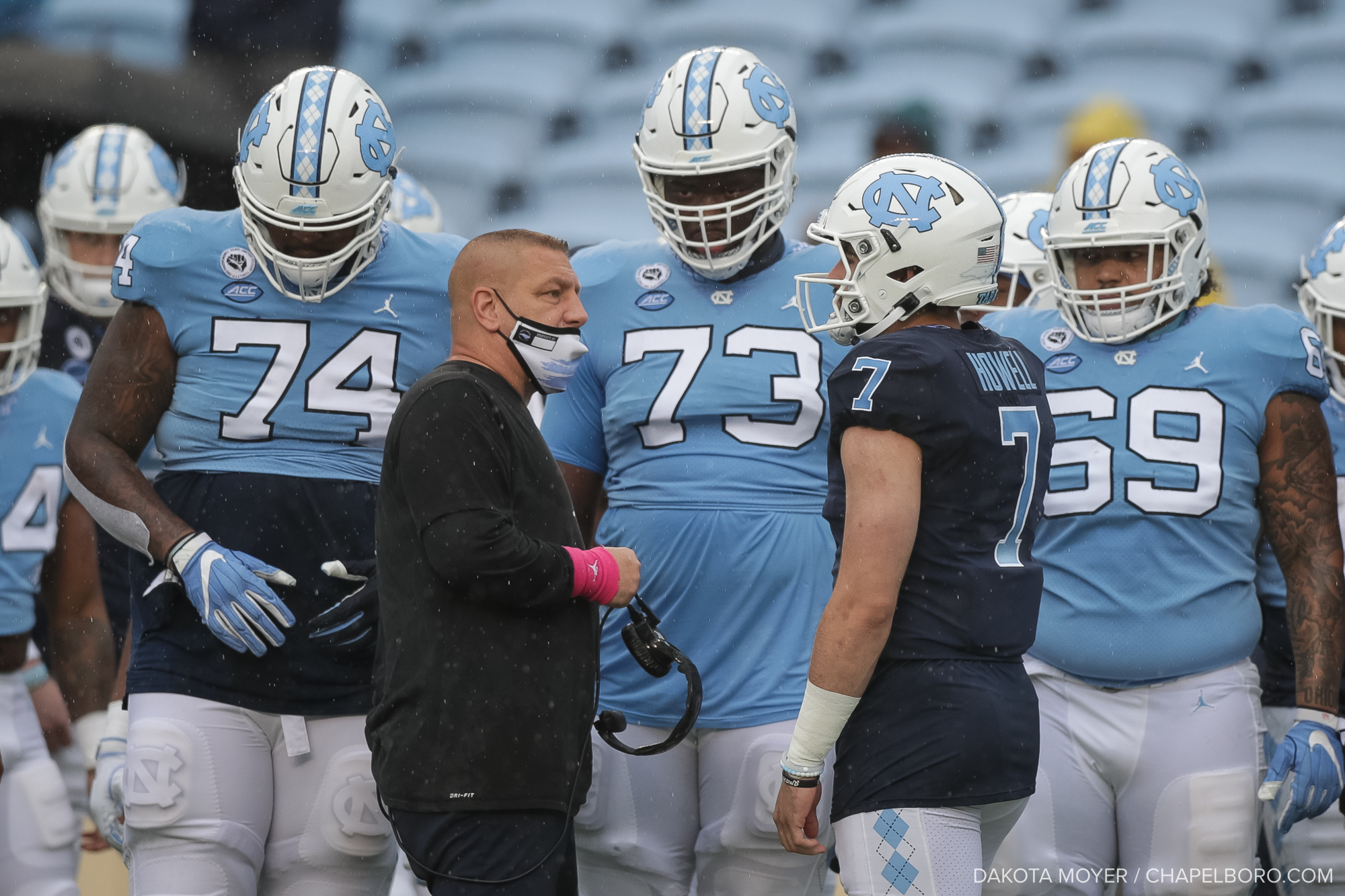
Kick-Off Times and TV Info Revealed for Five UNC Football GamesThe UNC football program revealed Thursday that it has received the game times and TV information for five games in the upcoming 2021 season. First is the season opener in Blacksburg against Virginia Tech, which will kick off at 6 p.m. on Friday, Sept. 3 and air on ESPN. The Tar Heels then move on […]
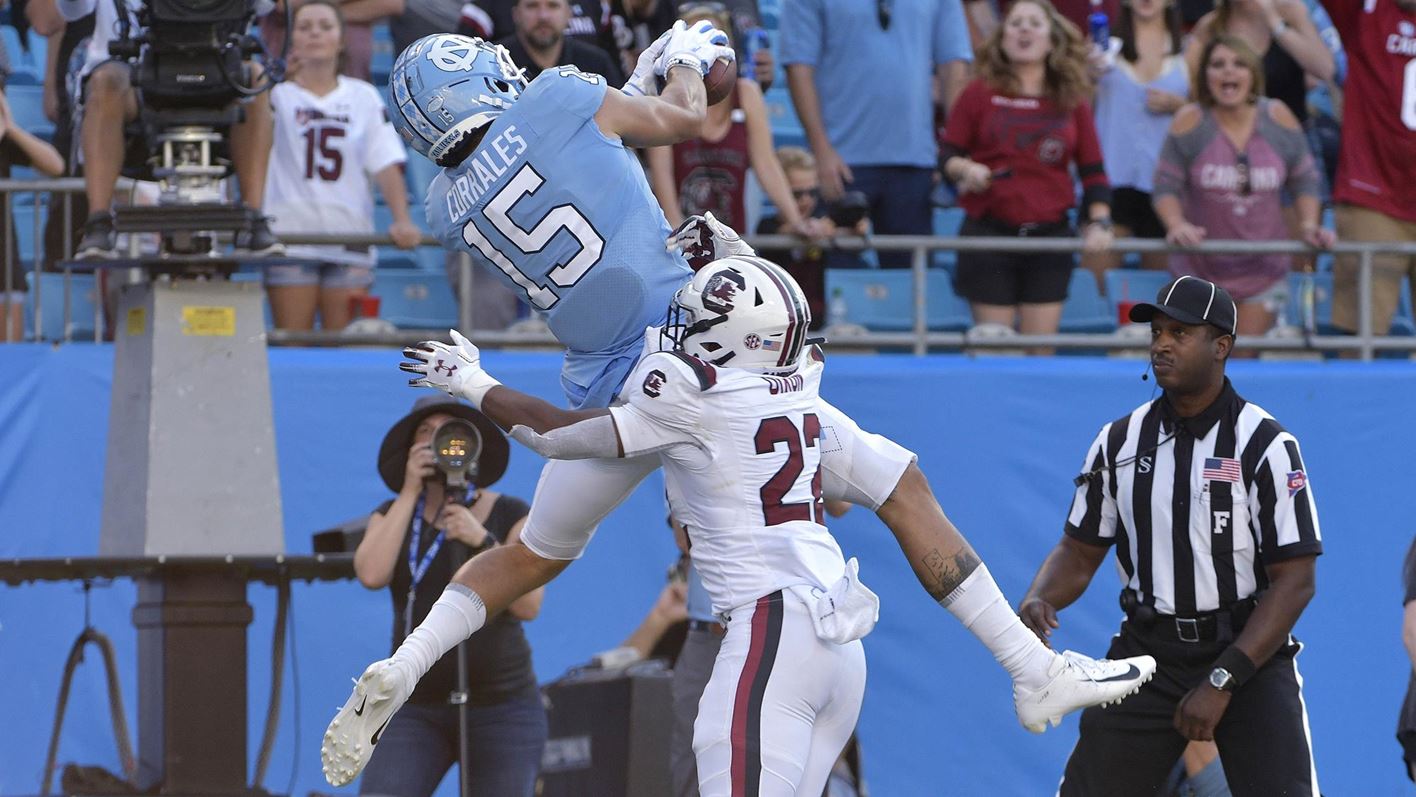
UNC Agrees to Home-and-Home Football Series With South CarolinaUNC announced Monday that it has agreed to a home-and-home football series against South Carolina, with the games set to take place during the 2028 and 2029 seasons. The first of the two games will happen in Columbia, SC on Sept. 2, 2028. South Carolina will then make the return trip to Kenan Stadium for […]
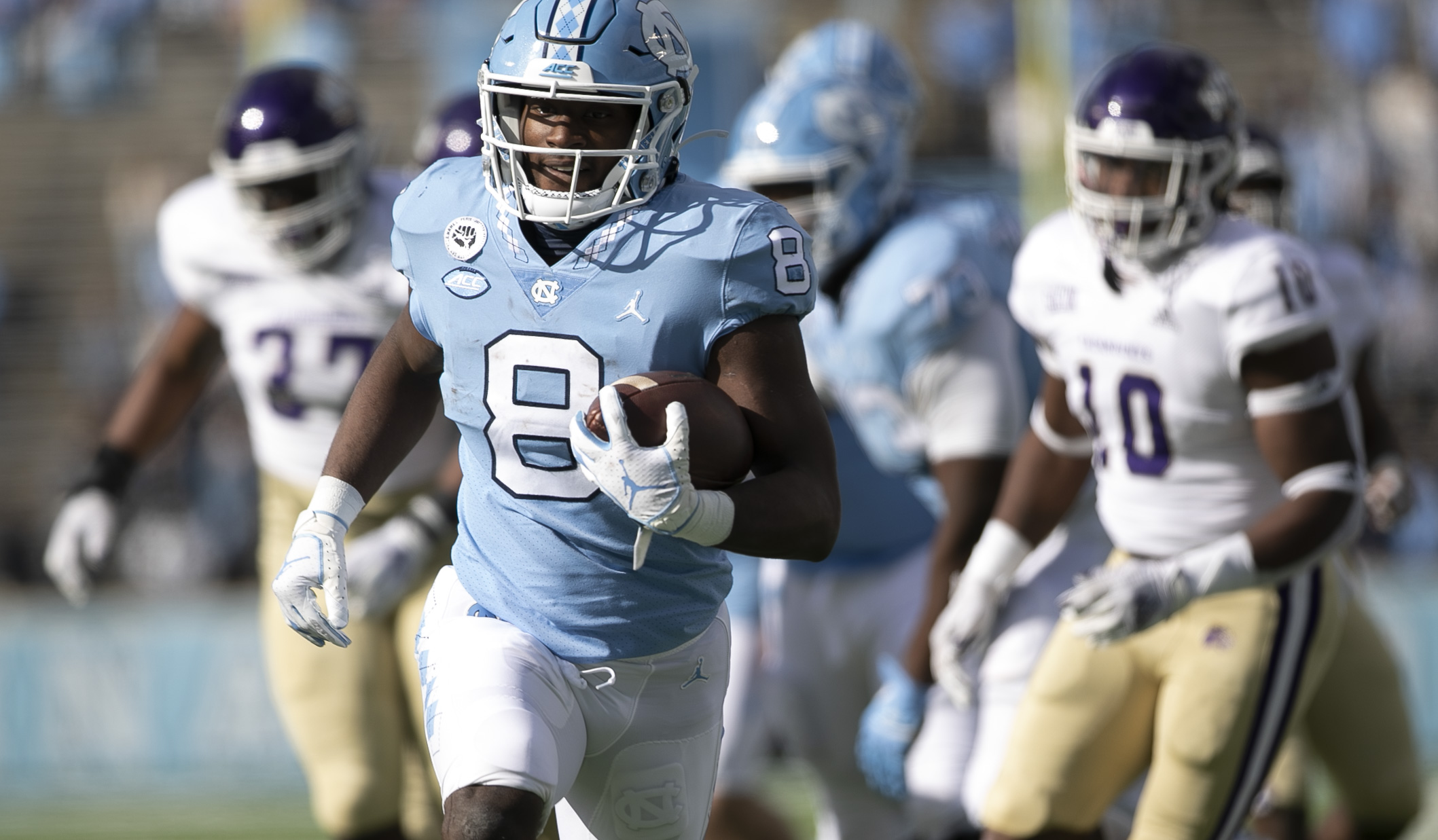
New York Jets Select Michael Carter In Fourth Round of NFL DraftDay Three of this year’s NFL Draft began very similar to Day Two, with a Tar Heel running back taken off the board early–as the New York Jets selected Michael Carter with the second pick of the afternoon and 107th overall. Carter’s partner in the UNC backfield last season, Javonte Williams, was taken with the […]
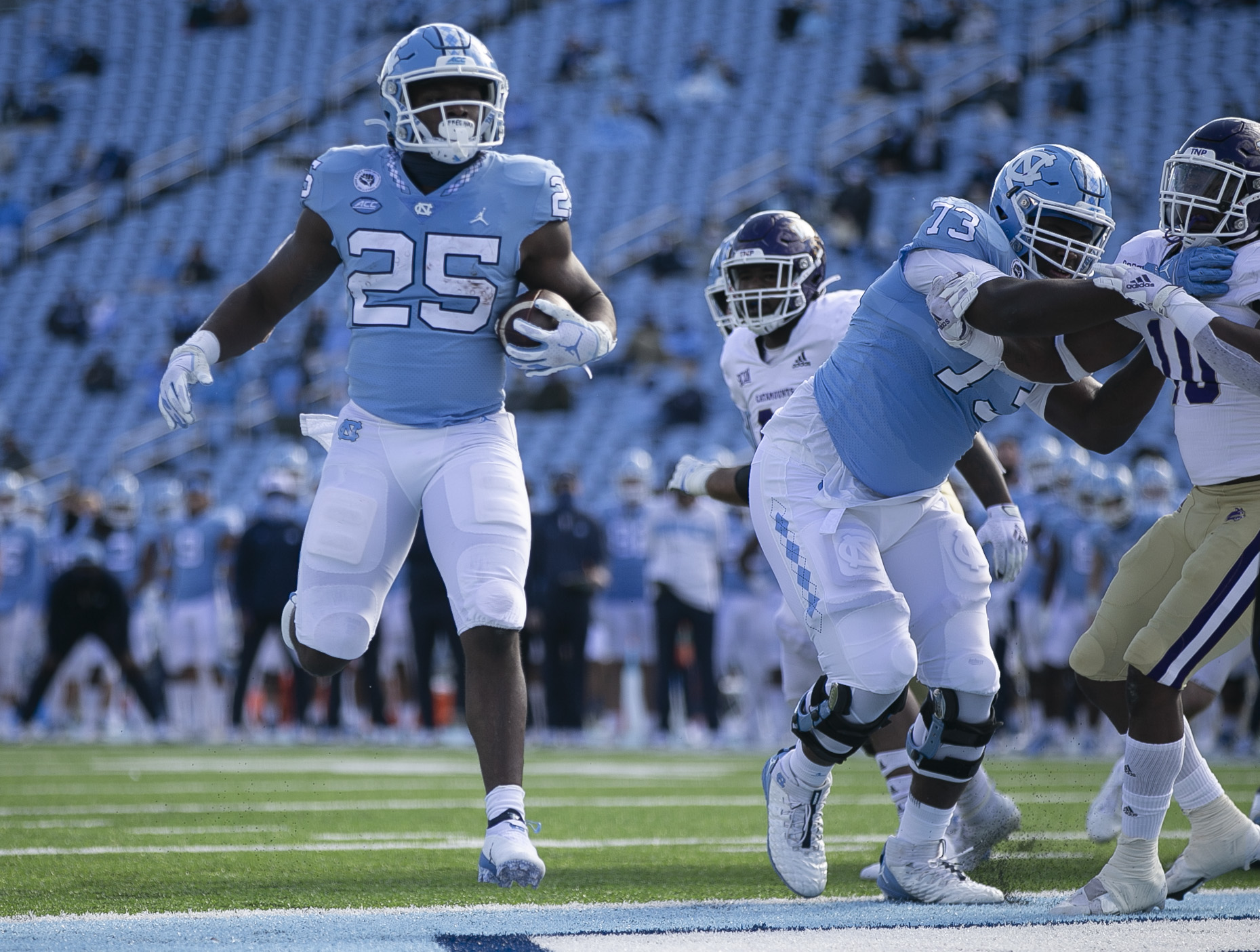
Javonte Williams Selected No. 35 in NFL Draft by DenverUNC junior running back Javonte Williams became the first Tar Heel off the board in this year’s NFL Draft on Friday night, as the Denver Broncos selected him in the second round with the No. 35 overall pick. Williams ran for 2,297 yards and 29 touchdowns during his three years at UNC, including setting a […]
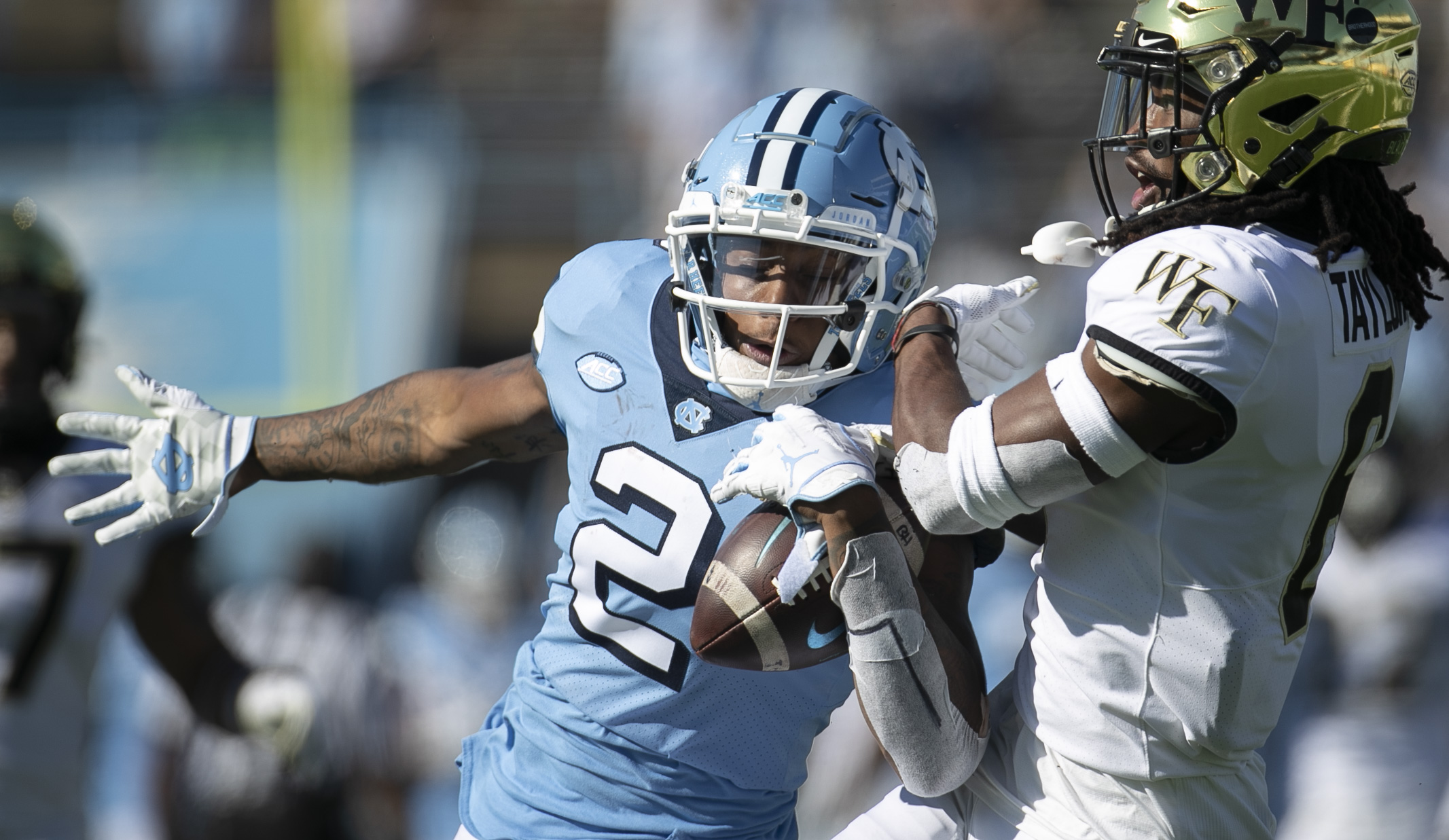
Washington Football Team Selects Dyami Brown in Third Round of NFL DraftIn the third round of the 2021 NFL Draft, the Washington Football Team used the 82nd overall pick on UNC junior wide receiver Dyami Brown. Brown spent each of the last two seasons as the top deep threat for UNC quarterback Sam Howell, and became the first UNC receiver to ever post back-to-back seasons of […]
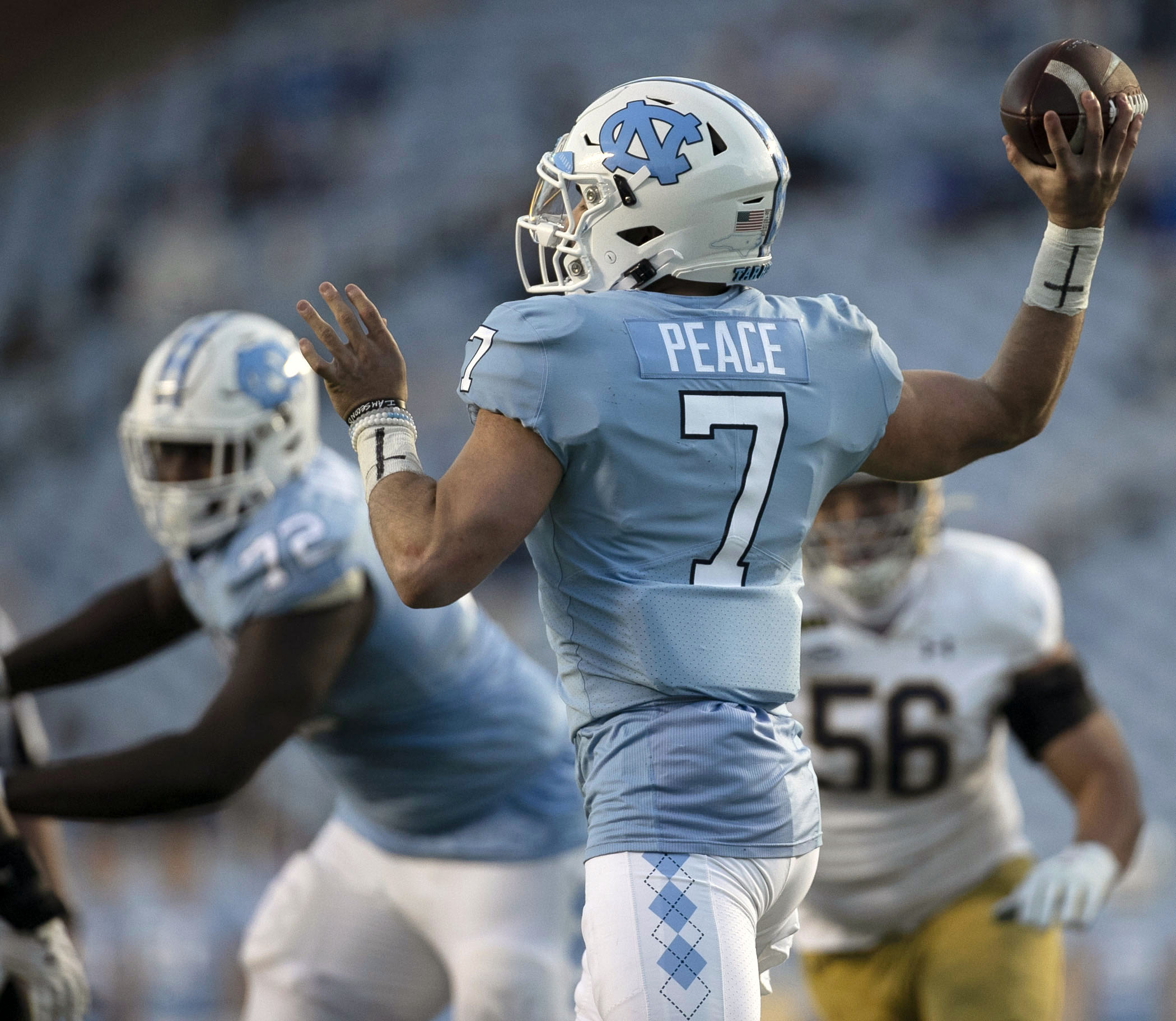
UNC Football Game at Notre Dame to be Nationally Televised in Prime TimeThe UNC football program announced Thursday that its game at Notre Dame on Oct. 30 will be nationally televised on NBC in prime time at 7:30 p.m. It is likely to be one of the toughest games of the season for the Tar Heels, who are expected to begin the year among the top 15 […]
›












